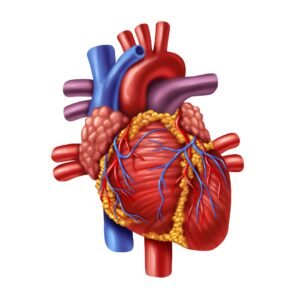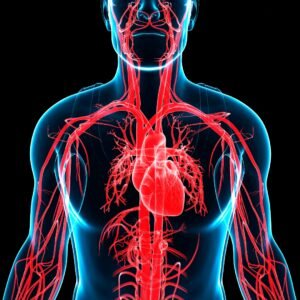Non Alcoholic Wine and Weightlifting: A Perfect Pairing

Non alcoholic wine has become a popular choice for health-conscious individuals, and as a 62-year-old weightlifter, I’ve discovered its potential to complement my fitness routine. Lifting weights in my senior years is crucial for maintaining health, independence, and quality of life. Combining my passion for both de-alcoholized wine and weightlifting led me to explore how these alcohol-free alternatives might support my fitness journey.To my pleasant surprise, I found that zero-alcohol wines can indeed enhance a weightlifting regimen in several ways.
Here are ten compelling benefits that showcase how non-alcoholic wine can be a valuable addition to your fitness lifestyle:
How Can Non Alcoholic Wines Improve Your Hydration During Weightlifting Sessions?

Here are some ways:
Non-alcoholic wines can potentially improve your hydration during weightlifting sessions in a few key ways:
Hydration Benefits:
Wines without alcohol provide hydration without the dehydrating effects of alcohol. Unlike regular wine, which acts as a diuretic, non-alcoholic versions can actually contribute to your fluid intake. This makes them a better choice for staying hydrated during and after workouts.
Electrolyte Content:
Many zero-alcohol wines contain natural electrolytes from the grapes used to make them. Electrolytes like potassium and magnesium are important for proper hydration and muscle function during exercise.
Lower Calorie Option:
Alcohol-free wines are typically much lower in calories compared to regular wine, with some options having as few as 50 calories per 8 oz serving. This allows you to hydrate without consuming excess calories that could interfere with fitness goals.
Practical Considerations:
- Choose options with minimal added sugars to avoid unnecessary carbs
- Look for non-alcoholic wines with higher juice content percentages for more natural hydration benefits
- Consider sparkling varieties for a refreshing post-workout drink option
While water should remain your primary hydration source, incorporating non-alcoholic wines in moderation could provide some hydration and recovery benefits for weightlifters. Just be sure to account for the calories and choose high-quality options without additives.
Why Are The Antioxidants In Non Alcoholic Wines Beneficial For Weightlifters?

Here are some reasons:
Understanding Antioxidants and Exercise
Weightlifting, like any intense physical activity, generates free radicals in your body. These unstable molecules can cause oxidative stress, leading to muscle damage and inflammation. Antioxidants play a crucial role in neutralizing these free radicals, protecting your cells from damage.
The Antioxidant Power of Non-Alcoholic Wines
Wines without alcohol retain many of the antioxidants found in regular wines, particularly polyphenols like resveratrol. These compounds have been linked to various health benefits, including reduced inflammation and improved cardiovascular health. For weightlifters, this translates to potential advantages in recovery and overall well-being.
By incorporating alcohol-free wines into your post-workout routine, you’re providing your body with a natural source of antioxidants. These can help combat exercise-induced oxidative stress, potentially reducing muscle soreness and supporting faster recovery. Additionally, the anti-inflammatory properties of these antioxidants may contribute to long-term joint health, which is essential for weightlifters.
How Do Non Alcoholic Wines Support Muscle Recovery After Intense Weightlifting?

Here are the ways:
The Importance of Post-Workout Recovery
After an intense weightlifting session, your muscles need proper nutrition and hydration to repair and grow stronger. The recovery process is crucial for making gains and preventing injuries. While protein shakes and water are common post-workout choices, non-alc wines offer unique benefits that can complement your recovery routine.
Non-Alcoholic Wines and Muscle Recovery
The natural compounds found in non-alcoholic wines, such as flavonoids and resveratrol, have been shown to have anti-inflammatory properties. This can be particularly beneficial for weightlifters dealing with exercise-induced inflammation
By reducing inflammation, these compounds may help alleviate muscle soreness and speed up the recovery process.
Moreover, some non-alcoholic wines contain small amounts of carbohydrates, which can help replenish glycogen stores in your muscles after a workout. While not a replacement for proper post-workout nutrition, a glass of non-alcoholic wine can be a flavorful addition to your recovery routine, providing both hydration and beneficial plant compounds.
Why Is Sleep Quality Crucial For Weightlifters And How Can Non-Alcoholic Wines Help?

Here are the reasons:
The Role of Sleep in Muscle Growth and Recovery
I’ve struggled with getting quality sleep for years. How about you? Quality sleep is essential for any athlete, but it’s particularly crucial for weightlifters. During deep sleep, your body releases growth hormone, which is vital for muscle repair and growth. Poor sleep can hinder your recovery, impair your performance, and even increase your risk of injury.
Non-Alcoholic Wines and Sleep Quality
Unlike alcoholic beverages, which can disrupt your sleep patterns, non-alcoholic wines may actually contribute to better sleep quality. Many de-alcoholized wines contain small amounts of melatonin, a hormone that regulates your sleep-wake cycle.
Consuming a glass of non-alcoholic wine in the evening might help signal to your body that it’s time to wind down.
Additionally, the ritual of enjoying a glass of wine before bed can be relaxing, helping you de-stress and prepare for sleep. By choosing a NA option, you’re getting the psychological benefits of this ritual without the negative effects of alcohol on your sleep quality. This can lead to more restful nights and better recovery for your muscles.
How Can Non-Alcoholic Wines Help Weightlifters Maintain A Balanced Diet?

Here are some ways:
The Importance of a Balanced Diet in Weightlifting
As a weightlifter, you know that proper nutrition is key to achieving your fitness goals. Balancing your macronutrients, staying hydrated, and getting enough micronutrients are all crucial aspects of a weightlifter’s diet. However, strict dieting can sometimes lead to feelings of deprivation or social isolation.
Zero-Alcohol Wines as Part of a Balanced Diet
Non-alcoholic wines can be a valuable addition to a weightlifter’s diet. They offer a way to enjoy the flavor and experience of wine without the empty calories and negative effects of alcohol. Most zero-alcohol wines are low in calories, making them a diet-friendly option for those watching their caloric intake.
Furthermore, many non-alcoholic wines contain beneficial compounds like polyphenols and resveratrol, which can contribute to your overall health. By incorporating these drinks into your diet, you’re adding variety and enjoyment without compromising your nutrition goals. This can make it easier to stick to your dietary plan in the long term, supporting your weightlifting progress.
What Role Do Non Alcoholic Wines Play In Managing Stress For Weightlifters?

Here are the ways:
The Impact of Stress on Weightlifting Performance
Stress can be a significant obstacle in your weightlifting journey. High stress levels can lead to decreased motivation, impaired recovery, and even increased risk of injury. Managing stress is crucial for maintaining consistent progress in your weightlifting regimen.
Non-Alcoholic Wines as a Stress Management Tool
While alcoholic drinks are often used as a means of stress relief, they can actually exacerbate stress in the long run. Non-alcoholic wines, on the other hand, can provide a healthier alternative for relaxation. The act of sipping a glass of wine, even without alcohol, can be a calming ritual that helps you unwind after a long day.
Moreover, some compounds found in non-alcoholic wines, such as certain flavonoids, have been associated with reduced stress and anxiety levels. By choosing non-alcoholic wines, you’re engaging in a stress-relief activity that doesn’t compromise your fitness goals. This can lead to better overall stress management, potentially improving your weightlifting performance and recovery.
How Can Non-Alcoholic Wines Enhance Social Interactions For Weightlifters?
Here are some ideas:
The Social Aspect of Fitness and Weightlifting
Weightlifting isn’t just about physical strength; it’s also about mental fortitude and social support. Many weightlifters find motivation and encouragement through their gym communities or fitness groups. However, social situations often involve alcohol, which can be at odds with your fitness goals.
Non-Alcoholic Wines as a Social Lubricant
Non-alcoholic wines offer a solution to this social dilemma. They allow you to participate in social drinking rituals without consuming alcohol. Whether you’re at a post-competition celebration or a team-building event, having a non-alcoholic wine in hand can help you feel included without compromising your training regimen.
Furthermore, by choosing alcohol free wines, you’re setting a positive example for other fitness enthusiasts. You’re demonstrating that it’s possible to enjoy social occasions without alcohol, potentially inspiring others to make healthier choices. This can lead to stronger, more supportive relationships within your weightlifting community, enhancing your overall experience and motivation.
Why Are The Cardiovascular Benefits Of Non Alcoholic Wines Important For Weightlifters?

Here are a few reasons:
The Connection Between Cardiovascular Health and Weightlifting
While weightlifting primarily focuses on building strength and muscle mass, cardiovascular health remains crucial for overall fitness. Good heart health supports your weightlifting performance by improving endurance, aiding in recovery, and reducing the risk of long-term health issues.
Non-Alcoholic Wines and Heart Health
Non-alcoholic wines retain many of the heart-healthy compounds found in regular wines, particularly polyphenols. These compounds have been associated with improved cardiovascular health, including better blood pressure regulation and reduced risk of heart disease.
For weightlifters, these cardiovascular benefits can translate to improved performance and longevity in the sport. Better circulation can enhance nutrient delivery to your muscles during workouts and aid in recovery afterward. By incorporating NA wines into your diet, you’re supporting not just your muscular strength but also your overall cardiovascular health, contributing to a more well-rounded fitness profile.
How Can Non Alcoholic Wines Aid In Weight Management For Weightlifters?

Here are a few ways:
The Importance of Weight Management in Weightlifting
Whether you’re trying to bulk up, lean out, or maintain your current weight, managing your body composition is a crucial aspect of weightlifting. This often involves carefully monitoring your caloric intake and making mindful choices about what you consume.
Non-Alcoholic Wines and Calorie Control
One of the significant advantages of zero-alcohol wines for weightlifters is their low calorie content. Regular alcoholic wines can be calorie-dense, with much of those calories coming from alcohol itself. Alcohol-free wines, on the other hand, typically contain far fewer calories, making them a more diet-friendly option.
By choosing alcohol-free wines, you can enjoy the flavor and experience of wine without significantly impacting your daily calorie budget. This can be particularly beneficial if you’re in a cutting phase or trying to maintain a lean physique. Moreover, the flavonoids in alcohol-free wines have been associated with improved metabolism, potentially supporting your weight management efforts.
What Makes Non Alcoholic Wines A Better Choice For Post-Workout Celebrations?

Here are a few ways:
The Tradition of Post-Workout Celebrations
Celebrating achievements is an important part of any fitness journey. Whether you’ve hit a new personal record or completed a challenging workout, acknowledging your progress can boost motivation and reinforce positive habits. However, traditional celebrations often involve alcoholic beverages, which can be counterproductive to your fitness goals.
Non-Alcoholic Wines as a Celebratory Alternative
Non-alcoholic wines offer an excellent alternative for post-workout celebrations. They allow you to maintain the ritual and social aspect of toasting to your success without the negative effects of alcohol on your recovery and performance.
After an intense weightlifting session, your body needs proper hydration and nutrients to begin the recovery process. Alcoholic drinks can interfere with this by dehydrating you and potentially slowing down protein synthesis. Non-alcoholic wines, in contrast, can contribute to your hydration and even provide some beneficial compounds like antioxidants.
Moreover, by choosing alcohol-free wines for your celebrations, you’re reinforcing healthy habits and demonstrating a commitment to your fitness goals. This can inspire both you and your workout partners to maintain a balanced approach to fitness and celebration.
In conclusion, NA wines offer a multitude of benefits for weightlifters. From supporting hydration and recovery to aiding in stress management and social interactions, these beverages can be a valuable addition to your fitness lifestyle.
By incorporating alcohol-free wines into your routine, you’re not just enjoying a flavorful drink – you’re making a choice that aligns with and supports your weightlifting goals. Remember, balance is key in any fitness journey, and non-alc wines provide a way to enjoy the pleasures of wine without compromising your athletic performance. So, the next time you’re looking for a post-workout drink or a way to unwind after a heavy lifting session, consider reaching for a glass of NA wine. Your muscles (and taste buds) might just thank you for it.
What Are Some Other Non Alcoholic Wine Blogs You Might Enjoy?

- 16 Jaw-Dropping Non Alcoholic Wine Health Benefits
- Non Alcoholic Wine Explained For Low-Carb Sippers
- How To Master Non-Alcoholic Wine Etiquette At Social Events
- How To Choose The Best Zero Alcohol Red Wine
- Cracking The Code Of Pairing Non Alcoholic Wines With Cheese
I’m excited to share with you my good news… Introducing Sinless Sourdough – Where Ancient Art Meets Low Carb Science!

Stop sacrificing flavor for your health goals – our authentic heritage sourdough starters have been specially adapted for low-carb baking
Limited Time Offer: 82% OFF – Only $19.99 Today (Regular Price: $113)
Sinless Sourdough™ Starter + Membership Includes:
- Authentic Heritage Starter shipped directly to your door
- Complete Video Training Library showing you step-by-step how to create:
- Artisan boules and batards with delicious crispy crust and soft interior
- Crisp French baguettes for the dinner table or as crostini
- Chewy Montreal-style bagels that won’t spike your blood sugar
- German street pretzels with authentic alkaline crust
- Convenient everyday bread machine loaves for sandwiches
- Supportive Community of fellow low-carb bakers to share your journey
- Extensive Recipe Collection for using sourdough discard (nothing goes to waste!)
“After years of disappointing low-carb bread experiments, Sinless Sourdough changed everything. I’m enjoying real sourdough again without the carb guilt!” — Maria T.
“My family can’t tell the difference between these loaves and traditional bread. The starter is incredibly active and the results are amazing!” — James K.
🔥 CLAIM YOUR MEMBERSHIP NOW 🔥
Use code: Sinless82 at checkout Offer expires soon! Limited starter batches available
82% OFF TODAY FOR MEMBERSHIP
Sinless Sourdough™ Heritage Collection

Transform your low-carb baking with our Global Heritage Collection featuring unique starters from historic moments across continents. Each brings its own personality and flavor profile while maintaining excellent nutritional values—just 1g net carbs compared to 8-10g in traditional starters.
Choose from:
- 1849 San Francisco Gold Rush – Authentic California sourdough character
- 1898 Yukon Gold Rush – Subtle tanginess with notes of butter
- 1847 Oregon Trail – Rustic character with exceptional rise
- 1000-Year-Old Italian Monastery – Delicate complexity with ancient lineage
Each starter connects you to centuries of baking tradition while supporting your modern low-carb lifestyle. Our proprietary transformation process preserves their unique characteristics while adapting them for health-conscious baking.
When you purchase any Sinless Sourdough™ starter, you receive our comprehensive onboarding sequence teaching you exactly how to revive your dehydrated starter for perfect low-carb, high-protein results every time.
Click the link:
SINLESS STARTER SHOP
🍞 START YOUR LOW-CARB SOURDOUGH JOURNEY TODAY! 🍞
Medical Studies and Reviews on Sourdough
Here they are:
Does Sourdough Bread Provide Clinically Relevant Health Benefits?
The Sourdough Microbiome
Study Of Sourdough Starter Microbiome To Boost Bread Quality and Safety
Sourdough Microbiome Comparison and Benefits
Effect of Breadmaking Process on In Vitro Gut Microbiota Parameters in Irritable Bowel Syndrome
Nutritional Benefits of Sourdough; Systematic Review
Sourdough-leavened bread improves postprandial glucose and insulin plasma levels in subjects with impaired glucose tolerance
Use of sourdough in low FODMAP baking
A novel formulation of sourdough bread enriched with plant sterols and high-fibre inulin improves metabolic control in type 2 diabetes
Impact of sourdough fermentation on appetite and postprandial metabolic responses – a randomised cross-over trial with whole grain rye crispbread
Disclaimer:
All information provided on this website regarding the health benefits of sourdough low carb bread is intended for educational purposes only. The content presented is not meant to be taken as specific medical advice for any individual. It should not be considered a replacement for professional medical guidance or treatment. If you have any health concerns, especially related to diabetes, pre-diabetes, or any other medical condition, please consult with a healthcare professional immediately.
- UNUSUAL KETO INSTANT POT RECIPES FOR 2025 - April 27, 2025
- Boost Your Keto Diet with These Non-Alcoholic Wine Hacks - April 27, 2025
- 10 Unique & Healthy Mocktails You Need to Try - April 27, 2025



